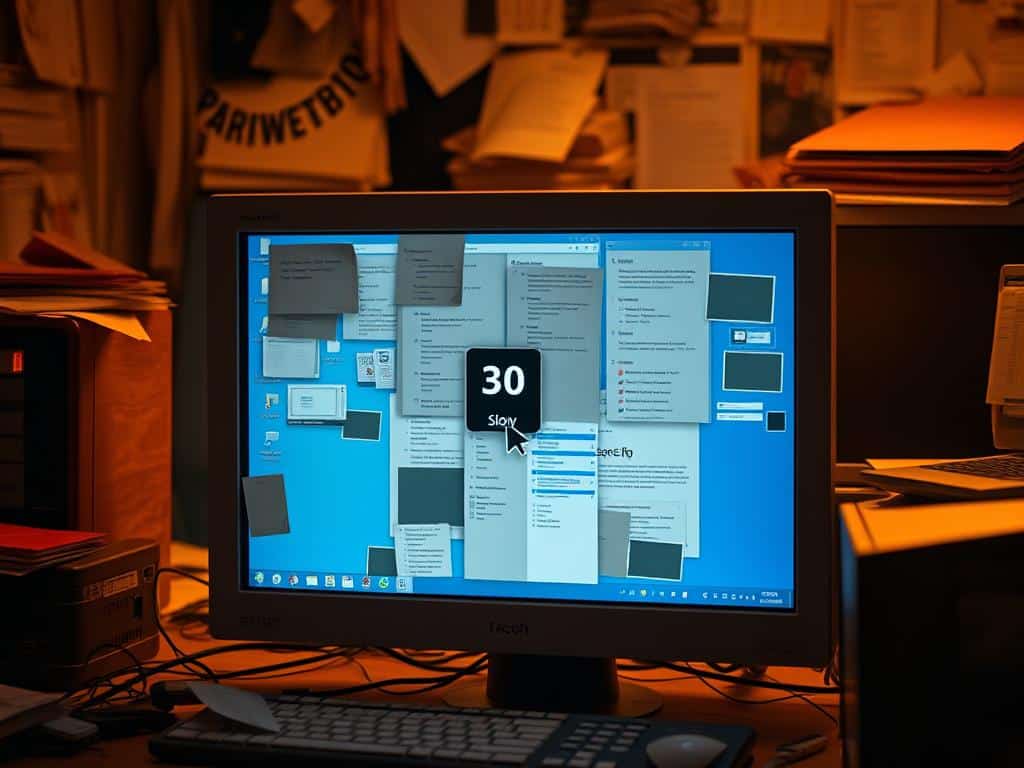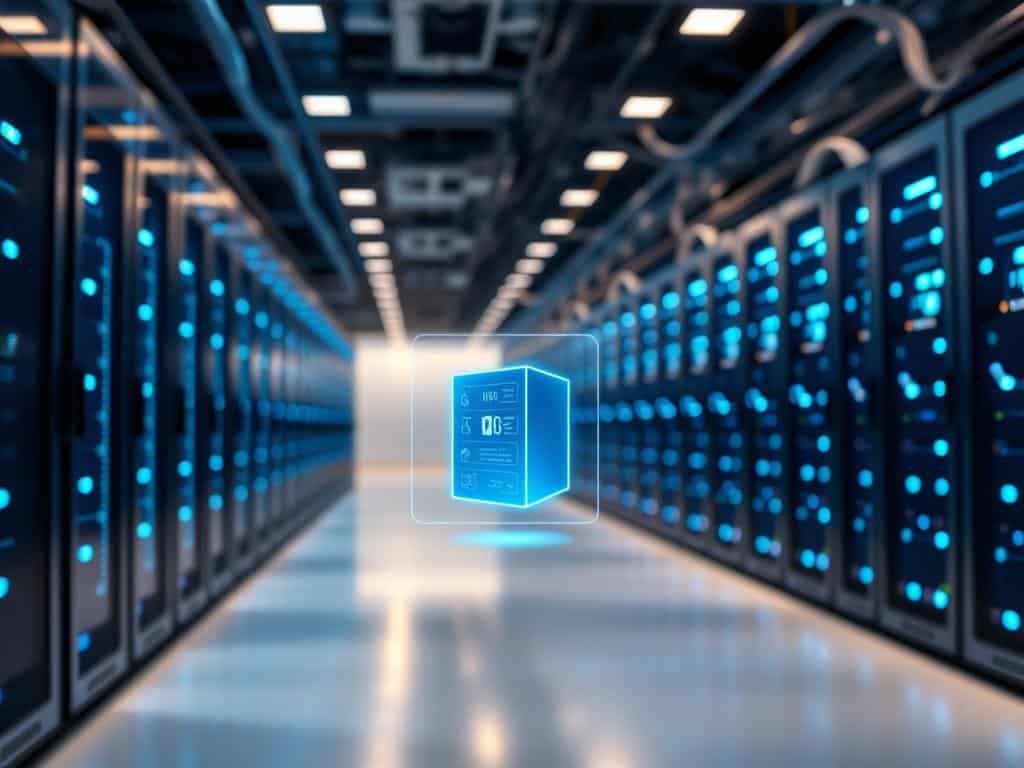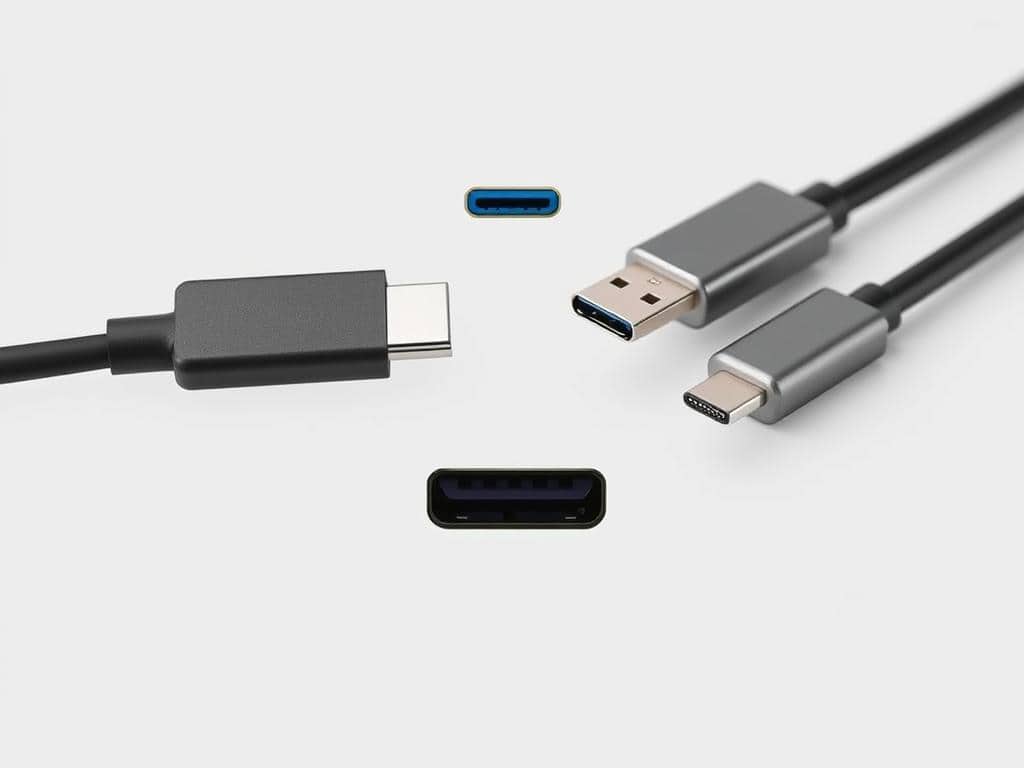Did you know that about 60% of users face slow computer issues due to neglect? It’s shocking to see how many of us unknowingly slow down our PCs. Problems like cluttered hard drives or not enough RAM are easy to fix.
When my computer slows down, even simple tasks become a challenge. But, there are simple steps to make my PC run smoothly again. By understanding why my computer is slow and keeping it maintained, I can greatly improve my tech experience. In this article, I’ll share five easy steps to fix my computer for good.
Key Takeaways
- About 60% of slow performance issues stem from poor maintenance.
- Regular maintenance can improve PC performance by 20-30%.
- Cluttered storage, when over 90% full, greatly affects performance.
- Not enough RAM can cause a 70% performance drop when multitasking.
- Updating drivers can solve 25% of hardware problems.
Understanding the Reasons Behind a Slow PC
Knowing why a PC is slow is key to fixing it. Many things can slow down a computer, making it hard to use. By understanding these reasons, I can find ways to make my computer run better.
Common Causes of Slow Performance
Too many background processes can slow a PC. Programs that use a lot of resources, like many browser tabs, can make the computer slow. Using tools like Task Manager helps me see which programs are using the most resources.
Not having enough free space on the hard drive is another problem. If more than 85% of the drive is full, the computer can slow down a lot. Keeping at least 20% free is important for good performance. Too many files can make the computer slow and less functional.
Old drivers and hardware can also slow down a computer. As technology gets newer, older parts may not work as well. Computers over five years old often get slower because of this. Upgrading these parts can help keep the computer running smoothly.

Malware is another big problem for slow PCs. In bad cases, malware can use up resources for things like crypto mining. Regular scans are important to keep the system safe. Understanding these issues helps me fix my PC’s problems.
PC Troubleshooting: 5 Easy Steps to Boost Performance
Fixing a slow PC is easy with a few key steps. These methods help me fix my computer and boost its performance. Here are five effective steps to take.
Step 1: Restart Your Computer
Restarting your computer might seem simple, but it’s powerful. It clears temporary files and refreshes your system’s memory. This action can solve many short-term problems. Regular restarts keep your system running smoothly and prevent old processes from using up resources.
Step 2: Identify Resource-Hogging Programs
Task Manager helps me find programs that use too much CPU and memory. Closing or uninstalling unused programs frees up system resources. This can make your computer up to 30% faster.
Step 3: Optimize Startup Programs
Many apps start up automatically, slowing down your computer. Disabling unnecessary programs makes your computer start up faster. This can make your system up to 20% faster during startup.
Step 4: Clean Up Disk Space and Defragment
Keeping enough disk space is key for good performance. Using Disk Cleanup and defragmenting your hard drive improves data access. Regular defragmentation can make your computer 10-30% faster. Keeping your disk space clean boosts your computer’s speed.
Step 5: Upgrade Hardware
If steps 1-4 don’t work, upgrading your hardware might be needed. Adding more RAM can improve multitasking by about 25%. Switching to an SSD can make your computer up to 300% faster than a traditional hard drive.
Conclusion
Fixing a slow PC is easier than you think. By following the steps in this guide, I can make my system run faster. Simple steps like restarting and finding resource-hogging programs help a lot.
Knowing why my PC is slow is key to keeping it running well. Regular cleaning and optimization can stop many problems. For example, 70% of users face software issues. Keeping drivers updated and avoiding malware also helps a lot.
To keep my computer running well, I need to take action. Managing disk space, running diagnostics, and checking connections are important. By doing these things, I can work more efficiently and enjoy a better computing experience.



